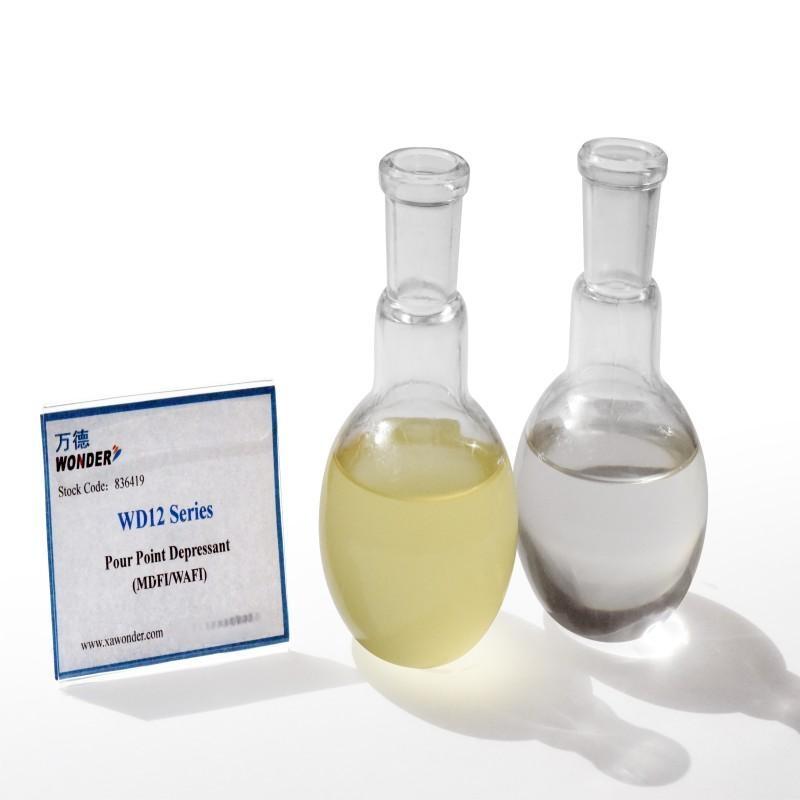-
Categories
-
Pharmaceutical Intermediates
-
Active Pharmaceutical Ingredients
-
Food Additives
- Industrial Coatings
- Agrochemicals
- Dyes and Pigments
- Surfactant
- Flavors and Fragrances
- Chemical Reagents
- Catalyst and Auxiliary
- Natural Products
- Inorganic Chemistry
-
Organic Chemistry
-
Biochemical Engineering
- Analytical Chemistry
-
Cosmetic Ingredient
- Water Treatment Chemical
-
Pharmaceutical Intermediates
Promotion
ECHEMI Mall
Wholesale
Weekly Price
Exhibition
News
-
Trade Service
International oil prices fell by more than 20% in the third quarter, the worst performance
since the epidemic.
International oil prices fell to levels they were at the start of the year this week amid growing concerns that rising interest rates would trigger a recession that would limit fuel demand
.
There are signs that OPEC+ could implement production cuts at next week's meeting to avoid further declines in oil prices, with sources revealing that Russia is considering a proposed 1 million barrel
cut in capacity.
Tamas Varga, a senior market analyst at crude oil broker PVM Oil Associates, said in an interview with the first financial reporter that in order to stabilize market expectations and avoid the situation that occurred at the beginning of the epidemic in 2020, OPEC must act
.
He explained that oil demand is under pressure, selling is the effect of recession fears caused by global interest rate hikes, and disappointing economic data from major economies clouds the near-term outlook for energy consumption
.
The cloud of recession is elusive
Since the third quarter, international oil prices have fallen by more than 20%, and the outside world is increasingly worried about the continued sluggish global energy demand
.
Both the International Monetary Fund and the World Bank have warned that downward pressure on the global economy is increasing
.
According to the OECD's medium-term economic outlook released this week, global economic growth is expected to slow further to 2.
2% this year and 2.
2%
in 2023.
As a result, consumption expectations have been weighed down, with the International Energy Agency (IEA) noting in its latest monthly report that energy demand growth this year was mainly concentrated in the first half of the year and is expected to stagnate in the final three months of the year, with the annual average increase in global oil demand adjusted to 2 million barrels per day, slightly lower than the previous estimate of 2.
1 million barrels
.
At the same time, according to research by the OPEC+ Joint Technical Committee, global oil inventories will increase by 1.
4 million b/d in November, and the supply and demand situation is not optimistic
.
Varga told reporters that deteriorating fundamental expectations are being reflected in
the spread structure of futures contracts.
Taking Brent crude oil, the benchmark of global crude oil prices, as an example, although the premium structure of futures contracts has not reversed, the premium in recent months is once again approaching the $1 mark
.
Intercontinental Exchange Brent crude oil contract quotes
Varga believes that the risk of oversupply lays the foundation
for proactive market management.
It is clear that global economic concerns directly affect the balance
of supply and demand.
On the other hand, the strengthening of the dollar also had a negative impact
on oil prices.
The Fed's decision, released last week, underscored its determination
to curb inflation.
The Fed said it saw little evidence of easing inflationary pressures, so it would continue to choose to raise interest rates to curb prices from continuing to rise
.
Fed funds rate futures show that the market expects the Fed to continue to raise interest rates by 125-150 basis points until the end of the year, and the bullish trend of the dollar will remain active at the end of the year, which in turn will set a ceiling
on oil prices.
Valga told reporters that a strong dollar and volatile asset prices show that despite early signs of peak inflation in the United States, interest rates will rise further in the foreseeable future, exacerbating the risk of
recession.
At the same time, the trend of the situation in Ukraine is worth paying attention to, which is an important source of global economic uncertainty, and the energy supply situation in Europe this winter is also one of the
potential factors that disrupt crude oil demand.
OPEC+ is ready for production cuts
At its monthly meeting on the 5th of this month, OPEC+ announced a 100,000 b/d cut from October, returning to square one of the newly launched production increase plans
.
The meeting statement noted that all parties have been concerned about the adverse impact of oil price fluctuations and liquidity declines on the current oil market, as well as the need to
support the stable and efficient operation of the market.
At that time, the committee said that it was ready to adjust production in various forms if necessary to stabilize the market and supply and demand, which also provided a policy basis
for OPEC+'s next production cuts.
The first financial reporter noted that this month OPEC+ two giants Saudi Arabia and Russia have communicated, Russian President Putin and Saudi Crown Prince Mohammed bin Salman (Mohammed bin Salman) expressed support for OPEC+, discussed ways for the two countries to cooperate to ensure the stability of the global oil market and balance supply and demand
.
At present, there has been no significant change
in the OPEC+ supply side.
Statistics show that OPEC+ production still has a shortfall of 3.
583 million b/d from the production quota in August, and many countries, including Nigeria, Kazakhstan and Libya, are facing capacity challenges due to insufficient investment, aging facilities and political factors, which is likely to continue
.
In addition, progress on the Iran nuclear deal has stalled, and a deal is unlikely to be reached anytime soon
.
Therefore, for the alliance of oil producers, how to reverse the external concern about the balance of supply and demand in time has become the key
.
UBS expects that fears of a recession in the United States and the world could lead to reduced demand for crude oil and its derivatives, and OPEC+ may have to announce production cuts of at least 500,000 barrels to avoid a supply glut
.
Varga told reporters that the market is still affected by recession fears in the short term, and it will take more time and conditions
for crude oil to rebound in a trend.
He analyzed that the favorable factors on the supply side are expected to be gradually released
from next month.
On the one hand, the US Strategic Reserve SPR is coming to an end, and according to the US Energy Information Administration (EIA), the US Strategic Petroleum Reserve has fallen to 434.
1 million barrels, the lowest level
since October 1984.
On the other hand, new EU sanctions on Russian oil sales will come into effect in December, and global crude oil supplies will be affected to some extent
.
In addition, the risk of a gas gap in Europe may also increase replacement demand
for crude oil.
However, these factors cannot have an impact for the time being, and Varga believes that stabilizing oil prices in the current situation requires the alliance of oil producers to first tighten production, such as 500,000 barrels or 1 million barrels, to express its determination to support prices, which may provide a lower bound for the market, and Brent crude is expected to be supported
around $80.
The subsequent trend will depend on the direction of the energy supply situation in Europe and Ukraine this winter
.
Phil Flynn, senior market analyst at Price Futures Group, wrote in the report: "The oil market is in trouble
as recession fears seem to mask the usually very optimistic fundamentals.
The market has ignored the potential for
energy shortages this winter.
In fact, short-term demand concerns will face the reality that inventories remain too tight heading into winter, while the situation between Russia and Ukraine continues to threaten Europe's energy supplies
.







